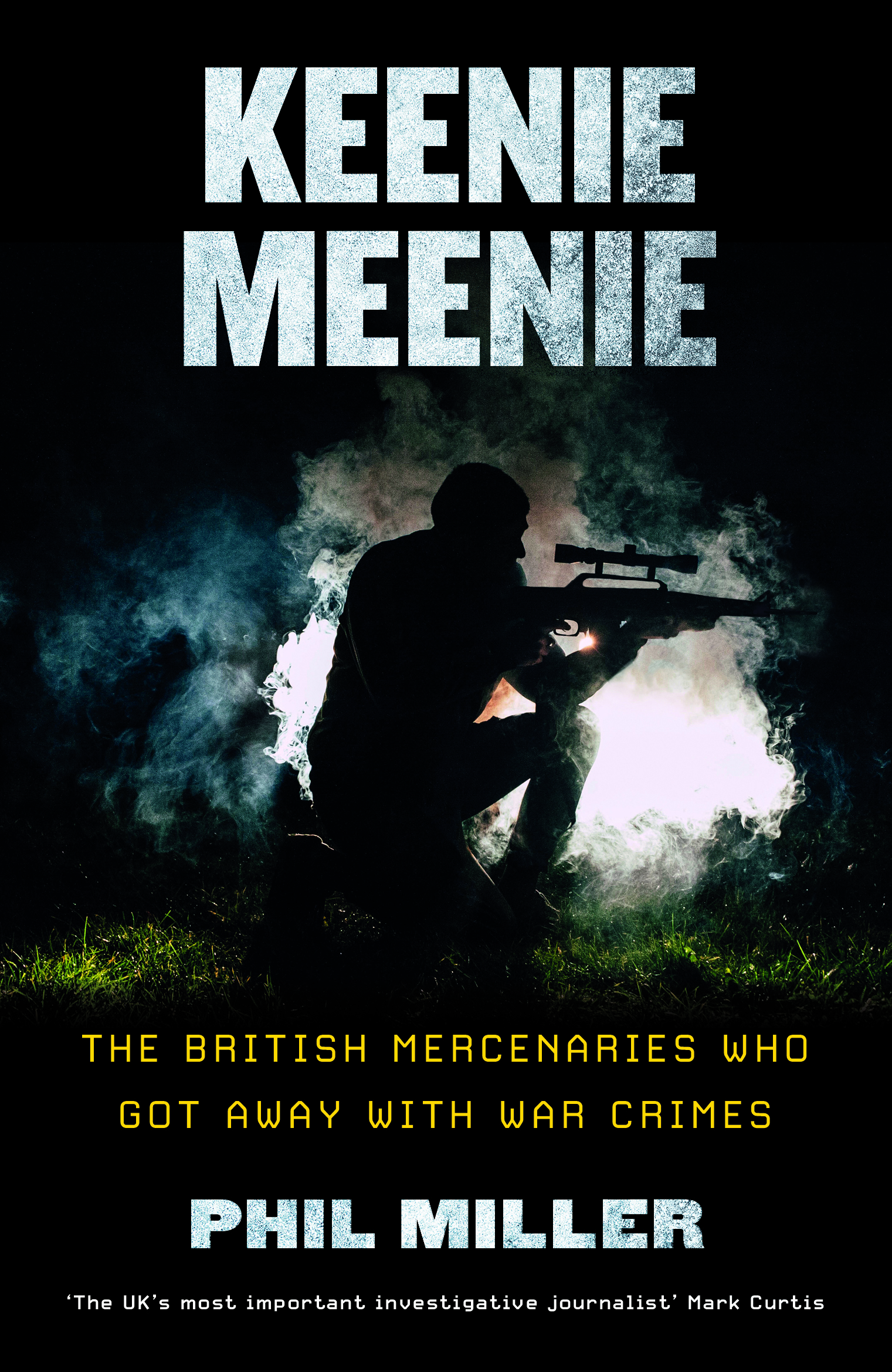Journalist and researcher Phil Miller has just released a new book, Keenie Meenie: The British Mercenaries Who Got Away With War Crimes, which explores the shameful role of mercenaries in fuelling war and human rights abuses.
Profiting from war is one of the most controversial aspects of UK foreign policy. The debate normally centres on why British bombs are being sold to a belligerent ally. However, the arms industry will always defend its business on the grounds that its staff never pull the trigger, and that any subsequent casualties are therefore not its responsibility. Or as the chairman of Britain’s largest arms dealer, BAE Systems, modestly told shareholders in 2019: ‘[We] provide defence equipment that ultimately encourages peace.’
Tenuous as that logic may sound, amid this heated debate on the arms trade it is often forgotten that there is another British industry altogether, which has absolutely no qualms about being directly involved in war. Mercenaries will deliver the bullet directly to their client’s target of choice.
My new book, Keenie Meenie: The British Mercenaries Who Got Away With War Crimes, shines a light on one such private army, which was so secretive that even its name is shrouded is mystery. Keenie Meenie Services, or KMS, was run by a former British special forces commander, Colonel Jim Johnson, who had been aide-de-camp to the Queen. Johnson ran a mercenary operation against Republican forces in Yemen in the 1960s, with the support of MI6, before teaming up with other dogs of war to found KMS in the mid-1970s.
The company set up and ran an elite counter-insurgency unit in Oman, where the country’s dictator was worried about being overthrown by left-wing rebels. By 1984 this experience in Oman had caught the eye of Sri Lanka’s President Jayewardene, a right-wing ruler who was desperate to crush an independence movement from the island’s Tamil minority. Keenie Meenie coached a Sri Lankan police commando unit that went on to massacre Tamil civilians, but the uprising continued and soon the Tamil movement had fought the government to the negotiating table.
While Tamil negotiators demanded the withdrawal of British mercenaries, Jayewardene did the opposite paying KMS to provide helicopter gunship pilots, so that when the ceasefire broke down his side held the upper hand militarily. For the next three years, British mercenaries flew on combat missions in which scores of Tamil civilians were massacred.
Newly declassified diplomatic cables reveal that British government ministers knew these atrocities were taking place, but did little or nothing to stop them. Whitehall planners judged the defeat of the Tamil movement to be in Britain’s geopolitical interests, a decision which allowed mercenaries to inflict untold suffering in Sri Lanka.
Phil Miller is a staff reporter for Declassified UK. His book, Keenie Meenie: The British Mercenaries Who Got Away With War Crimes, is published by Pluto Press. An accompanying documentary will be released later in 2020 follow www.KeenieMeenie.info for updates.

